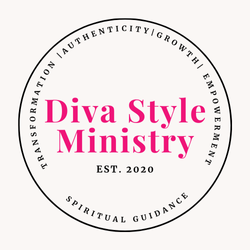The Oxford dictionary defines affirmation as, the action or process of affirming something or being affirmed (he nodded in affirmation), and/or emotional support or encouragement – for example, “I am filled with confidence, I know I can handle anything.”
In general, affirmations are used to help reprogram our subconscious mind, to motivate us to believe positive and constructive things about ourselves, in the universe, and in our position therein.

Affirmations also allow us to create the reality we want – whether that is to attract riches or love, power, health, or happiness. There is another meaning of affirmations of this sort, according to Walter E. Jacobson, MD, because our subconscious minds are influential in upgrading our lives and voicing our wishes.
The outcomes of events may have a huge effect on a subconscious basis. When we can see tangible benefits of our practices, it encourages us to continue and gives us a higher level of belief in our own power to change our circumstances.
Affirmations are essentially declarations intended to make a person self-change. They will also help concentrate emphasis on the ambitions that can facilitate meaningful and sustained self-change all day, both in and of themselves.
You can use affirmations in any situation where you would like to see a positive change takes place in your life.
These might include times when you want to:
- Raise your confidence before presentations or important meetings.
- Control negative feelings such as frustration, anger, or impatience.
- Improve your self-esteem.
- Finish projects you have started.
- Improve your productivity.
- Overcome a bad habit.
Affirmations will be easier if you incorporate them with other constructive reinforcement and targeting strategies.
- Write down a list of behaviors or actions on which you would like to focus, and choose ONE to begin your affirmation practice with. Make sure what you want to positively affect or change is consistent with your fundamental beliefs and the things that matter most to you because you are truly inspired to do so. Trying to use an affirmation to change something that doesn’t touch your heart or spirit will be harder because the emotion that helps you to move forward won’t be there. Your affirmations should speak to YOU – not to anyone else.
- Make sure your statement is credible and feasible — Focus your energy and intention on a practical, factual, positive change. Think of the income amount you are earning. Does this amount bring security to your life? If not. you could use affirmations to request an increase – something like “My income increases with my focused efforts to support my goals.”
- Transform negative into nice — Note the recurring feelings or perceptions that bring you down if you deal with negative self-talk. Then choose a statement that disputes the reasoning and feeling and creates instead a positive feeling and a positive outlook. Speak the new, positive statement out loud – because it’s nearly impossible to THINK negatively while you are speaking positively OUT LOUD. It doesn’t have to be a shout – even a whisper will do – but you must HEAR your voice saying the affirmation to interrupt the negative thought pattern.
- Write in the present tense — Write and speak your affirmation as if it was already true and real. This helps you to think that the declaration is correct in the present tense. For instance, if you feel anxious about talking in front of a group, write down how you would picture the speech going. Remind yourself that, “I am well prepared and well-read. I am prepared to give a great lecture.”
- Say it with feeling — Affirmations that bear emotional weight can be more successful. Remembering any expression of your affirmation should echo a sentence that is important to you. You might say, for example, “I am ready to face new challenges at work because I am qualified.”
- Practice affirmations with others. When the mind is calm and content, it shows on our faces. Merrillresearch.com reported that a sign of happiness is when the lips rise symmetrically. In an authentic smile the eyelids drop, and eyebrows lower. By giving someone a compliment, it naturally strokes our endorphins. Extending yourself to give affirmation to others is a great way to make yourself feel better as well as others. Whether the affirmation is returned or not, you’ll feel better for making someone else’s day a little brighter.
Remembering what is important
Life seems to run smoother when we feel comfortable and have a good attitude. When you are comfortable in your surroundings, you’ll express more of your authentic knowledge and personality. When you have a positive attitude, you will be more relaxed and smile more, and that will communicate your positivity to others. You can “pass along” that positive attitude to others quite easily, with just a little effort to let it show.
As author Dale Carnegie once said, “It isn’t what you have or who you are or where you are what you are doing that makes you happy or unhappy. It is what you think about it.”





